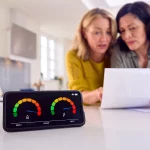Internet Censorship, 10Mbps USO and More – Digital Economy Act to Pass
The Digital Economy Bill 2017 has today effectively been approved by both houses of parliament, which means positive changes for UK broadband connectivity (10Mbps USO, compensation etc.). On the other hand the internet faces more censorship and a proposed 30Mbps USO was dropped.
The new legislation is not the first to share the ‘Digital Economy‘ title and indeed the previous attempt in 2010 was arguably much more controversial, not least due to its inclusion of significant broadband service restrictions for persistent Internet copyright infringement (thankfully that aspect never saw the light of day).
Similarly the new bill, which is now destined to become an Act after parliament all but approved it this afternoon as part of the “wash up” process prior to the imminent General Election on 8th June 2017, is another quirky mix of pros and cons but most of it has survived; partly due to a lack of effective opposition to some of the more contentious aspects (e.g. internet censorship).
Advertisement
The act covers a multitude of different areas, such as measures to help improve national broadband infrastructure and changes that will give Ofcom greater powers to collect extra information from ISPs and to then share that information with third-parties for the benefit of consumers (i.e. extra detail on local broadband speeds and coverage etc.). We’ve summarised the biggest changes below.
New Digital Economy Act 2017 Measures
* 10Mbps Universal Service Obligation (USO) for Broadband
The USO establishes a legally-binding minimum level of broadband service that the chosen suppliers must be able to deliver upon request (e.g. KCOM in Hull and BT across the rest of the UK). Previously the USO only supported a basic copper telephone line and very basic (dialup) Internet access, while the new USO requires a minimum download speed of at least 10Mbps to be delivered (well above nearly all other EU states).
Most of the new USO will be delivered via enhancements to existing fixed line technology (e.g. Long Reach VDSL / FTTC), although it’s possible that inferior Satellite technology could also play a role. The Government’s Broadband Delivery UK programme is expected to bring fixed line “superfast broadband” (24Mbps+) to 97% of the UK by 2020 and so the USO’s primary focus will be on tackling the final 3%.
The House of Lords had recently managed to vote through a much tougher 30Mbps USO (here), which could have cost up to £2bn to implement (the 10Mbps target had a lower price tag of up to £1.1bn) but as we predicted this has now been dropped (it’s unlikely that they could have delivered 30Mbps by the original 2020 target, particularly given the lack of ISP support and slow roll-out in rural areas).
However a new mechanism has been introduced that will allow the Government to raise the USO’s minimum speed beyond 10Mbps in the future, albeit only once 75% of households have upgraded to a “superfast broadband” service. The Government will now need to run a final public consultation on the design of the USO, when they will set out its final specifications and approach to funding.
* Internet Censorship
The law introduces new measures that are designed to protect children by preventing them from being able to access “adult content” online. Under this system the British Board of Film Classification (BBFC) will be given the power to force Internet Service Providers (ISP) into restricting access to adult sites (e.g. porn) that fail to put “tough age verification measures” in place.
However the UN has warned that this approach lacks “data sharing safeguards” and may damage the vital “right to privacy and the right to freedom of expression” (here), not to mention that anybody who wants to circumvent such censorship will still find it very easy to do so.
* Automatic Compensation for Broadband Faults
Ofcom are working alongside the Act to build a new system that will automatically compensate broadband customers for service faults that result in a total loss of service for longer than two full working days (here).
The new law supports this requirement, although the regulator still has the tricky job of designing a system that’s reliable (not all connection problems are the ISPs fault), compensates fairly and which doesn’t result in consumers facing a price hike in order to cover the extra costs involved with its implementation. The latter may be unavoidable.
* Measure to Tackle SPAM (Junk Marketing)
A new Direct Marketing Code (DMC) is being introduced that will make it easier to prosecute firms that breach the direct marketing rules. In theory this should make it easier to tackle SPAM by ending all the controversial issues with respect to Direct Marketing (e.g. whether there should be “opt-in” or “opt-out“), the meaning of “consent” in the context of marketing and so forth.
In reality this will probably end up being about as effective as previous measures against the Internet scourge (i.e. not effective at all). Most spammers don’t care about consent or the law and are notoriously difficult to stop or track down. Only a globally agreed and properly enforced law will begin to change this.
* 10 Years in Jail for Internet Piracy (Copyright Infringement)
The law also toughens the sentencing options for people who infringe copyright laws online, such as by introducing a 10 year jail sentence. The Government claims that they are not trying to impose prison sentences for minor infringements like P2P file sharing, although critics argue that the wording of the bill is open to interpretation and could be “exploited by unscrupulous companies” (here).
* Revised Electronic Communications Code (ECC)
The ECC rules have been revised in order to make it cheaper and easier for telecoms and broadband developers to both access and build on private land (e.g. rural farms), although this involves a “major change” to the way land is valued and that hasn’t gone down too well with private land owners (here).
However the new Code rights will only apply to contracts signed after the law has come into effect, and will not apply to existing contracts retrospectively, although transitional arrangements will be needed in some cases as old contracts expire. It’s possible that further work may be needed before all of the finer points of detail can be agreed.
* Powers to Limit Appeals Against New Regulation
It’s long been felt that big mobile and broadband providers have hampered pro-consumer measures by tying Ofcom up with long and costly legal challenges. As such the Government has been working to make it harder for such operators to object to the regulator’s decisions on mere technicalities, while also making the appeals process itself cheaper and shorter for everybody.
The change removes the requirement for appeals cases to be decided “on the merits“, instead requiring the Competition Appeal Tribunal (CAT) to apply the same principles as would be applied by a court on an application for judicial review. This would effectively ensure that the merits of the case are “duly taken into account“. The change will ensure that the requirements of Article 4(1) are met but not exceeded, while also ensuring that industry’s rights of appeal are protected.
Nevertheless big operators fear that such changes will also make it easier for Ofcom to implement measures that contain mistakes or incorrect assumptions.
* More Information Sharing
Ofcom has gained new powers that will allow them to collect or demand more information from broadband ISPs and mobile operators. This in turn could be used to help produce more useful information, such as greater address-level detail on local broadband speeds, service quality or internal statistics about consumer complaints. The regulator can use this to check whether providers are keeping to their promises.
The new act is ultimately just a legislative template and a number of the above changes will still require further consultation before the final details can be agreed. For example, Ofcom are still consulting on the final design of their new system for automatic compensation and the Government will also need to do one for the USO etc.
Matthew Hancock MP, Digital Minister, said:
“Lords amendment 1 [30Mbps USO and 2Gbps for all aspiration] challenges the Government to be more ambitious on universal digital connectivity. The universal service obligation forms part of our plan to deliver better connectivity, helping to ensure that everyone gets decent broadband and no one is left behind.
However, we have serious concerns about whether the amendment is deliverable. As drafted, it is counterproductive to the implementation of a USO, because of the risk of legal challenge and the delay that that would cause. We are legislating for the USO under the EU telecoms legislative framework, under which a USO is intended to ensure a baseline of services where a substantial majority has taken up the service but the market has not delivered, and where users are at risk of social exclusion.
According to Ofcom’s latest data, in 2016, take-up of ultrafast broadband with a download speed of 300 Megabits per second and higher was less than 0.1%, so we are nowhere near being able to demonstrate that the majority of the population have access to full fibre with a download speed of 2 Gigabits per second. We therefore cannot accept Lords amendment 1, and we are not in a position of a substantial majority having taken up superfast broadband.
I do, however, support the ambition of better, faster, more reliable broadband, so the Government propose an amendment in lieu that requires any broadband USO to set a download speed of at least 10 megabits per second, and requires the Government to direct Ofcom to review the minimum download speed in the broadband USO once superfast take-up is 75%. That gives the assurance that any USO speed will be reconsidered once a substantial majority of subscribers are on superfast.”
The Act also includes some other recent changes, such as one that will work to maintain the Crown Guarantee for members of BT’s Pension Scheme (BTPS) as part of Openreach’s “legal separation” from the main group (here).
Admittedly some will say that this legislation has been rushed and that’s certainly true for some elements, such as the more aggressive Internet censorship changes that were shoehorned into the bill and with hardly any prior debate. However many of the other aspects, such as the USO, have had a lot of time for debate.
Advertisement
We should point out that the bill also covers various other areas, such as new rules for regulating Dynamic Spectrum Access (DSA) to support technologies like “white space” wireless broadband, improvements to the mobile switching process and new powers to financially punish mobile network operators if they fail to deliver on a coverage obligation; among other things.
Mark is a professional technology writer, IT consultant and computer engineer from Dorset (England), he also founded ISPreview in 1999 and enjoys analysing the latest telecoms and broadband developments. Find me on X (Twitter), Mastodon, Facebook, BlueSky, Threads.net and Linkedin.
« UK ISP Aquiss Reduce the Price of Unlimited Superfast FTTC Broadband


















































Comments are closed